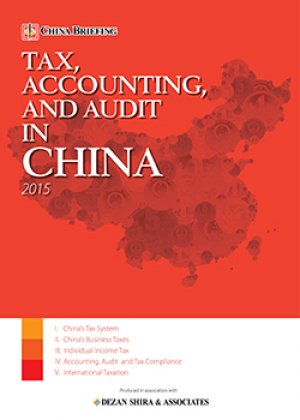China Regulatory Brief: Second Draft of Foreign NGOs Rules, New National Holiday Announced
China Announces New Public Holiday on September 3
On May 13, the Chinese government announced an additional national holiday on September 3 to celebrate the 70th anniversary of the Allies’ victory over Japan. As is customary with Chinese holidays, the additional days that employees have off will be compensated by having to work on the weekend. September 3 and 4 (Thursday and Friday) will be holidays, but Sunday will be a working day. China’s full 2015 holiday schedule can be found here.
China Clarifies Rules on Salaries and Benefits to be Deducted before Tax
On May 8, the State Administration of Taxation (SAT) released a circular to clarify corporate income tax (CIT) settlement in and after the year 2014. The circular states that employee’s benefits, salaries and monthly allowances should be allocated to the category of “enterprise’s expenditure for salaries and wages” and are allowed to be deducted before tax.
China Releases the Second Draft of Foreign NGOs Rules
On May 13, the National People’s Congress released the second draft of the “Foreign NGO Law,” which is now open to public comment. The law clarifies that foreign NGOs (non-governmental organizations) which have been legally registered in foreign countries and have been operating for two years overseas are allowed to set up a representative office in China. Approval needs to be obtained from China’s State Council prior to the formal establishment of the representative office. Foreign NGOs that have not established a Representative Office in China but intend to conduct temporary activities in China need to obtain a License for Temporary Activities. They are also required to have a Chinese partner to conduct activities in China. As China continues to face social and environmental challenges, the government increasingly recognizes the role of NGOs in addressing such issues.
![]() RELATED: NGO Activity in China Remains Limited
RELATED: NGO Activity in China Remains Limited
State Council Clarifies Issues about Local Regional Tax Incentives
On May 10, the State Council released a circular which states that the preferential policies offered by local governments to foreign companies will continue to be effective within the prescribed period. For preferential policies offered without a deadline, local governments are required to adjust the policies within a certain transition period. Previously signed subsidies and tax incentives between the governments and foreign companies will also continue to be effective. Any changes to the tax rates must be enacted in a law promulgated by the National People’s Congress (NPC). Earlier this year, the Chinese government required all the local governments to roll back their regional tax incentives to foreign investors, with the intention to create a fair market for both domestic and foreign enterprises.
|
Asia Briefing Ltd. is a subsidiary of Dezan Shira & Associates. Dezan Shira is a specialist foreign direct investment practice, providing corporate establishment, business advisory, tax advisory and compliance, accounting, payroll, due diligence and financial review services to multinationals investing in China, Hong Kong, India, Vietnam, Singapore and the rest of ASEAN. For further information, please email china@dezshira.com or visit www.dezshira.com. Stay up to date with the latest business and investment trends in Asia by subscribing to our complimentary update service featuring news, commentary and regulatory insight. |
![]()
 Tax, Accounting, and Audit in China 2015
Tax, Accounting, and Audit in China 2015
This edition of Tax, Accounting, and Audit in China, updated for 2015, offers a comprehensive overview of the major taxes foreign investors are likely to encounter when establishing or operating a business in China, as well as other tax-relevant obligations. This concise, detailed, yet pragmatic guide is ideal for CFOs, compliance officers and heads of accounting who must navigate the complex tax and accounting landscape in China in order to effectively manage and strategically plan their China operations.
Managing Your Accounting and Bookkeeping in China
In this issue of China Briefing, we discuss the difference between the International Financial Reporting Standards, and the accounting standards mandated by China’s Ministry of Finance. We also pay special attention to the role of foreign currency in accounting, both in remitting funds, and conversion. In an interview with Jenny Liao, Dezan Shira & Associates’ Senior Manager of Corporate Accounting Services in Shanghai, we outline some of the pros and cons of outsourcing one’s accounting function.
 Human Resources and Payroll in China 2015
Human Resources and Payroll in China 2015
This edition of Human Resources and Payroll in China, updated for 2015, provides a firm understanding of China’s laws and regulations related to human resources and payroll management – essential information for foreign investors looking to establish or already running a foreign-invested entity in China, local managers, and HR professionals needing to explain complex points of China’s labor policies.
- Previous Article Bénéfices Fiscaux d’une WFOE par Rapport à un Bureau de Représentation (BR)
- Next Article Previdenza sociale in Cina: Cosa devono sapere le imprese straniere






























